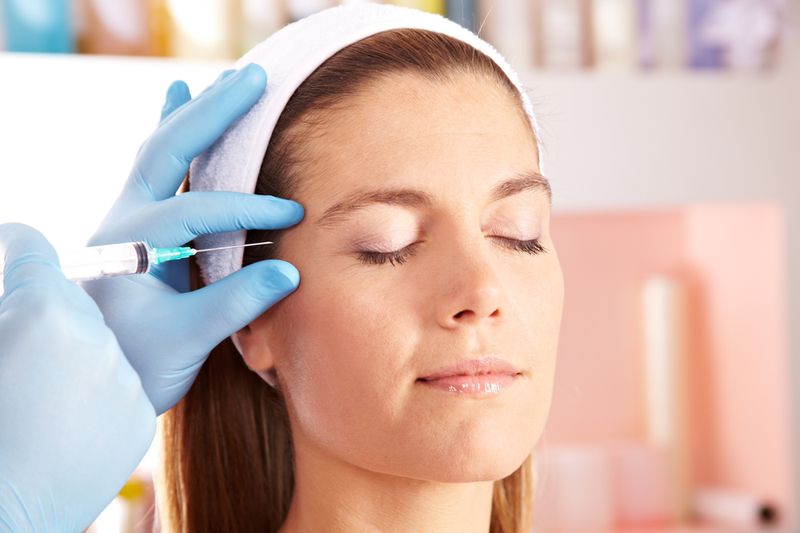
You know that Botox injections eliminate those frown lines that appear between your eyebrows, but did you know it might also improve your mood? Researchers have discovered that Botox treatments may do more than turn back the clock; they may also reduce symptoms of depression. The most recent study offers the most compelling evidence supporting Botox as a possible depression treatment, as the largest randomized trial conducted on the subject thus far.
Botox Studies
The study, which has now been published in the Journal of Psychiatric Research, was conducted by Dr. Eric Finzi, MD, PhD, and Dr. Norman E. Rosenthal, MD. The researchers studied 74 women who had been diagnosed with clinical depression. Some of those women were given a single treatment of Botox injections, while the rest were given a placebo injection. All of the treatments were done to reduce the appearance of vertical frown lines between the eyebrows.
Six weeks after the injections, patients were evaluated for their depression symptoms according to the Clinical Global Impression-Severity (CGI-S) scale and the Montgomery-Asberg Depression Rating Scale (MADRS). More than half of the patients given Botox reported significant improvement in their MADRS scores, while only 15 percent of those given saline solution reported improvement. In addition, 27 percent of the Botox patients experienced clinical remission from their depression, according to the MADRS scale.
Improvements were also seen in Botox patients according to CGI-S scores. Drs. Rosenthal and Finzi hypothesized the improvement might have been due to the fact the patients were no longer able to make negative facial expressions due to the Botox injections. These findings support earlier theories from Charles Darwin and William James that suggested facial expressions have a direct impact on mood.
A smaller study performed in 2012 showed similar results. Swiss researchers discovered depressive symptoms decreased by nearly half in the group of patients receiving Botox injections. Those in the placebo group only had a 9-percent reduction in symptoms.
Benefits of Botox for Depression
Research results Botox may be indicated as a stand-alone treatment for depression or may be used in conjunction with other depression therapies. Botox may also be an option for patients that do not respond well to traditional depression treatments and medications.
Despite the promising results, researchers agree more work must be done to determine whether Botox injections can really be an effective treatment for depression. For now, the botulinum toxin continues to be the most sought after anti-aging treatment. Those that receive Botox injections may notice other benefits to the treatments as well.




